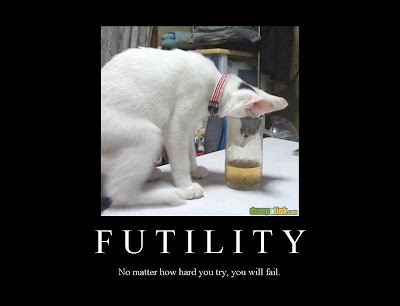
2 Samuel 19:11-20:13; John 21:1-25; Psalm 120:1-7; Proverbs 16:16-17
“’But there are ten tribes in Israel,’ the others replied. ‘So we have ten times as much right to the king as you do. What right do you have to treat us with such contempt? Weren’t we the first to speak of bringing him back to be our king again?’ The argument continued back and forth, and the men of Judah spoke even more harshly than the men of Israel.”
“Peter turned around and saw behind them the disciple Jesus loved—the one who had leaned over to Jesus during supper and asked, ‘Lord, who will betray you?’ Peter asked Jesus, ‘What about him, Lord?’”
“The path of the virtuous leads away from evil; whoever follows that path is safe.”
The story is told of an old monk known for his deep spirituality, which stemmed from the time he spent in fervent prayer. He would spend hours on his knees, praying and fasting, frequently refusing to take nourishment for days at a time. One day, as he was enjoying especially deep and sweet communion with his Creator, a small demon came to test him. Over and over again, the spirit applied his best torments, not once getting through the monk’s resolve. Finally, having observed the lesser evil’s futile efforts, Ol’ Slewfoot himself approached. “Let a Master show you how it’s done,” Beelzebub snorted. Leaning over the monk’s shoulder, he simply whispered, “Your brother just made Cardinal,” and prayer time was over.
I don’t remember first hearing this parable, but that it has stuck with me for decades speaks volumes. I would do a lot better in life if I was less concerned about others’ successes and more focused on my own relationship with Christ. By nature, I’m a pretty competitive guy. Sizing up myself against others is almost an instinctive response. But that doesn’t make it right. Nothing worthy of God ever comes from accomplishing anything just for the sake of beating others to it. The Holy Spirit does not call us to live above the standards of our fellow men and women. No, the Spirit calls us to live up to God’s standards. And when we really grasp and accept that concept, we instantly realize how foolish and self-destructive our human competitions must look to our Father.
When I try to live above the standard set by any other human being, I am actually lowering the bar set by God by not even trying to live to Christ’s standard. There may be understandable, “human” reasons for this. Living up to Jesus’ standard is its own exercise in futility. Living by earthly mores may be hard, but following Jehovah’s commandments is impossible. Our failures make us lose confidence in ourselves. We feel weak and inadequate. Better to have more achievable goals, we think. So, we compare ourselves to others, instead of to Christ. We rarely appreciate that, when humans spiritually compete, the harmony Yahweh intends for his Body is inevitably disturbed, if not destroyed all together.
Our seemingly limitless passion for surpassing others of our kind is truly an instrument of the devil. I was raised with the requirement that I be “the best.” Not my best; the best: heady stuff for a child. For years, then, my first reaction to anyone else’s success was to assume I could (and needed to) do better, and to be bitter and jealous unless and until I was. (Not anything to be proud of; I’m just owning it here.) I’d get very judgmental, finding flaws in everything the other person attempted. I’d gossip, when I thought it suited me (of course, it never really did). Nor was I above sabotage. But it was tough to make friends that way, and the day finally came when Christ had enough. I hit a professional wall – more like a glass ceiling – and I had to rethink priorities. I could continue to beat myself up, or I could once more lay hold of grace, and let Christ reconcile me to myself as well as to those my relentless drive had so alienated. I chose “B.” It was not an easy decision, at first. Others responded with completely reasonable cynicism and distrust. Little by little, though, a new man emerged. Don’t think I’m ready to fly, yet. My wings are still drying. But, at least, I am free of the cocoon of worldly expectations, and I can finally appreciate without rancor and even celebrate the spiritual achievements and growth of my brothers and sisters in Christ. I’ll tell you what: we really have one pretty terrific family, when it comes down to it. At least, when we’re not in competition. When the victories of each of us become a reason to celebrate for all of us, heaven will be one step closer, too.















